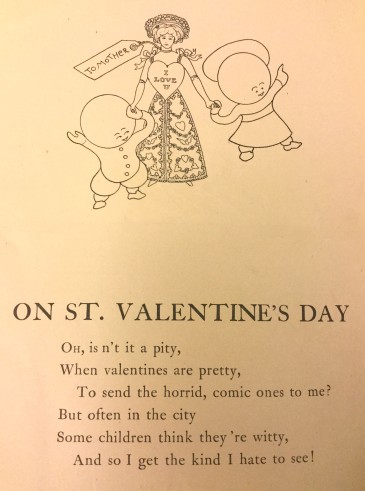Our Creative Fellow has been doing a deep research dive into a book that we all love: the Linguistic Atlas of New England, a multi-volume title documenting regional accents and dialects in New England circa 1931-1933. Researchers visited 213 communities and asked 416 people what words they used to describe common situations (for instance, “lightly raining”) and also how they pronounced common phrases. Pronunciation was documented via a modified version of IPA transcription and printed directly onto maps, with a sidebar listing respondents’ words and phrases.
In honor of the upcoming Valentine’s Day holiday, we thought we’d highlight some of the pages in the Linguistic Atlas documenting interpersonal relationships.
First, here is the record of how respondents asked, “May I escort you home?”

Don’t miss the very sweet response next to 29: “That’s what you say if you want to shine up to a girl after [prayer meeting].”
Presumably after having a nice time escorting someone home, a couple may end up “courting” or “sparking.” (You can see the “delightful” Rhode Island accent in the IPA transcription of “sparking” below.)
I’m not sure how I feel about referring to a marriageable young woman as “good sparking wood,” but I guess no one asked my opinion.
There’s also the (possibly more serious?) “Keeping Company,” including the memorable “beauing her around.”

If you’ve been keeping company with someone nice, you may find that you become quite fond of her.

Maybe you even want to make things official?!
Of course, SHE may not want to make things official. She might even… GIVE HIM THE MITTEN!












